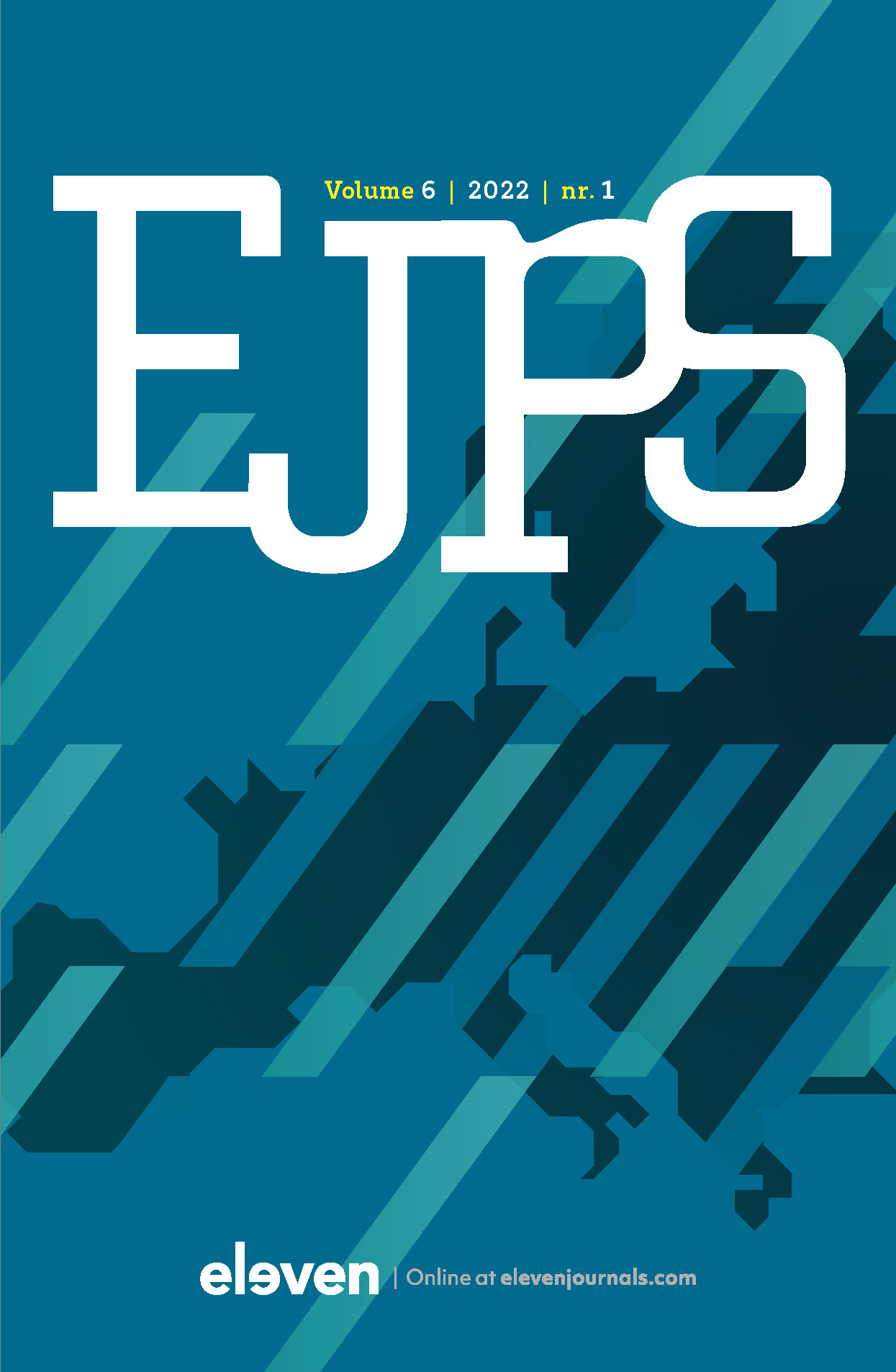|
This paper contributes to current debates on the policing of Internet fraud by introducing the Saudi Arabian experience. Drawing on field research in the capital city, Riyadh, it explores how this new aspect of policing activity fits in with not only the existing organisational practices, but also the occupational and individual concerns of frontline officers. Moreover, the article considers the implications of the Saudi culture, social norms, and values for police responses to Internet fraud. It is argued that the policing of Internet fraud in Saudi Arabia, and the extent to which it fits with contemporary debates on risk-based policing of cybercrime, can only be understood by examining how new policing modes and cultural traditions merge and integrate to shape police response to this novel criminal phenomenon |


European Journal of Policing Studies
About this journalSubscribe to the email alerts for this journal here to receive notifications when a new issue is at your disposal.
| Article |
Introduction |
| Authors | Antoinette Verhage, Lieselot Bisschop and Wim Hardyns |
| Article |
‘Moral’ versus ‘Risk-based’ Policing of CybercrimeInsights from Police Response to Internet Fraud in Saudi Arabia’s Capital City, Riyadh |
| Keywords | Fraud, internet, cybercrime, policing, risk, morality |
| Authors | Abdullah Faze Algarni |
| AbstractAuthor's information |
| Article |
Policing Online Child Sexual AbuseThe British Experience |
| Keywords | online child sexual abuse, online safety, technology, undercover policing, police challenges |
| Authors | Elena Martellozzo |
| AbstractAuthor's information |
|
Incidents of child sexual abuse (CSA) are frequently documented and have recently attracted intense police, public scrutiny and efforts of social control across the Western world. This paper aims to explore the very concerning issue of online CSA and the way in which the police is responding to this growing problem. It will present some of the challenges the police in the United Kingdom face daily in dealing with the threats to children’s online safety. It argues that although proactive undercover policing has helped police forces to unmask sex offenders1 who predate innocent victims online, the advancement of technology is making the work of police officers more and more challenging. The findings presented have been collected over the last decade (2003-2013) during two exploratory, grounded theory studies, which involved the interviews with 21 police officers and forensic examiners and the observation and analysis of three police operations at the London Metropolitan Police Paedophile Unit in London. |
| Article |
The Italian Police Forces into Neoliberal FrameAn Example of Perpetual Coexistence of Democratic and Authoritarian Practices and of Anamorphosis of Democratic Rules of Law |
| Keywords | italian police forces, anamorphosis of the rules of law, tolerated and intolerable illegalities, discretion of police forces, ignored insecurities |
| Authors | Salvatore Palidda |
| AbstractAuthor's information |
|
This text proposes a description and analysis of the Italian police forces. The approach adopted specifically regards their social and political construction and therefore their practices within the political organization of society. In order to better analyse the social construction of the Italian police case, I propose regarding the police as one of the several social institutions involved in the continuous experimentation to find a political organization of society. Research into the Italian police forces has been, and is still, very rare. In this paper I refer to research that I have carried out on the Italian police forces since 1990, and also to other documents and knowledge gathered in judicial inquiries and from reliable special reports. |
| Article |
The Significance of Police-Citizen Contacts for Public Trust in the Police in the Netherlands |
| Keywords | trust, police, Integral Safety Monitor |
| Authors | Arie van Sluis and Steven Van de Walle |
| AbstractAuthor's information |
|
This article explores the development of citizens’ trust in the police in the Netherlands and the relevance of police-citizen contact for trust in the police drawing data from the Dutch Integral Safety Monitor (IVm). This is a huge but underutilized dataset. The findings show that the police in the Netherlands are highly trusted by Dutch citizens. However, their experience with police-citizen contact play an important role in citizens’ trust. The findings of this research indicate not only the relevance of the perspective of procedural justice, but an instrumental and ‘proximity’ perspective as well. The article ends with an assessment of the relative strengths and weaknesses of the data in the IVm. |
| Article |
Country UpdatesEngland and Wales |
| Authors | Layla Skinns |
| Author's information |

